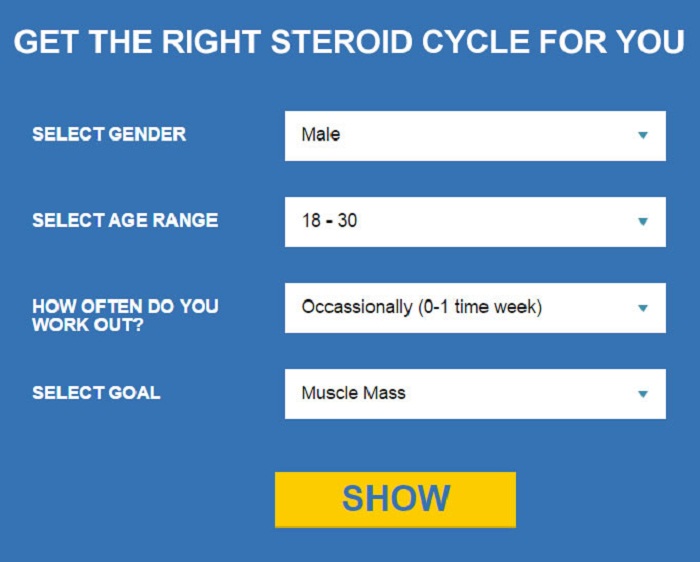HCG PCT
Contents
- 1 HCG PCT
- 2 What is HCG?
- 3 How Does HCG PCT Works?
- 4 How is HCG Administered?
- 5 What are the Benefits of HCG PCT?
- 6 What are the Risks and Side Effects of HCG PCT?
- 7 HCG vs. Clomid for PCT
- 8 HCG PCT Protocols (Dosage and Timing)
- 9 Where to Get HCG for PCT
- 10 Conclusion
- 11 FAQs
- 12 Is HCG safe for PCT?
- 13 How long should I use HCG for PCT?
- 14 Can I buy HCG without a prescription?
- 15 Is HCG more effective than Clomid for PCT?
- 16 Can women use HCG for PCT?
If you are a bodybuilder or athlete who uses performance-enhancing drugs (PEDs), then you are likely familiar with the importance of post-cycle therapy (PCT) in restoring your natural hormone production. PCT is a crucial step after a cycle of PEDs, as it helps to minimize the negative side effects and restore the hormonal balance in the body. One of the most popular drugs used for PCT is human chorionic gonadotropin (HCG).
In this comprehensive guide, we will discuss everything you need to know about HCG PCT, including how it works, its benefits and potential side effects, dosage and timing, and where to obtain it. Whether you are a seasoned bodybuilder or new to the world of PEDs, this guide will provide you with the information you need to make informed decisions about using HCG for PCT.
Must Check: Post Cycle Therapy (PCT) Dirty Truth
What is HCG?
Human chorionic gonadotropin (HCG) is a hormone that is naturally produced during pregnancy. However, HCG also has uses outside of fertility treatments, particularly for men who use performance-enhancing drugs (PEDs). HCG PCT is a powerful tool in any post-cycle therapy for men, as it helps to stimulate the Leydig cells in the testes to produce testosterone.
In this section, we will provide you with a detailed overview of HCG PCT, including what it is, how it works, and its various uses. Whether you are a bodybuilder or athlete looking to optimize your PCT, or simply curious about the benefits of HCG for men, this section will provide you with the information you need to make informed decisions.
How Does HCG PCT Works?
When you use performance-enhancing drugs (PEDs), your body’s natural hormone production is suppressed, including the production of testosterone. This is because the use of PEDs can disrupt the balance of hormones in the body. When you stop using PEDs, it can take some time for your body to restore its natural hormone production. This is where HCG comes in.
HCG works by mimicking the hormone luteinizing hormone (LH). LH is naturally produced by the pituitary gland and signals the Leydig cells in the testes to produce testosterone. However, when you use PEDs, LH production is suppressed, which in turn, suppresses testosterone production. By mimicking LH, HCG can stimulate the Leydig cells to produce testosterone, helping to restore natural hormone production in the body.
However, it is important to note that HCG should not be used alone for PCT, as it can actually suppress natural LH production if used for an extended period of time. HCG is typically used in combination with other drugs, such as selective estrogen receptor modulators (SERMs) and aromatase inhibitors (AIs), to help restore natural hormone production and prevent estrogen-related side effects.
How is HCG Administered?
HCG is typically administered through injection, either subcutaneously (under the skin) or intramuscularly (into the muscle). The method of administration and dosage can vary depending on the individual and their specific needs.
It is important to note that the dosage, frequency, and duration of HCG use for PCT should be carefully monitored and prescribed by a healthcare professional. Using HCG incorrectly can lead to negative side effects and can potentially worsen the suppression of natural hormone production.
In addition, using contaminated or improperly prepared HCG can also lead to health risks. Therefore, it is crucial to obtain HCG from a reliable source and follow proper administration guidelines.
What are the Benefits of HCG PCT?
The primary benefit of using HCG PCT is its ability to stimulate the production of natural testosterone in the body. By mimicking the function of luteinizing hormone (LH), HCG can signal the Leydig cells in the testes to produce testosterone, which helps to restore hormone balance in the body after a cycle of PEDs.
In addition to its role in restoring testosterone production, HCG PCT may also provide other benefits, These can include:
- Improved mood and well-being: Low testosterone levels can lead to symptoms such as fatigue, low libido, and depression. By restoring natural hormone levels, HCG can help alleviate these symptoms and improve overall mood and well-being.
- Preservation of gains: When using PEDs, individuals often experience significant gains in muscle mass and strength. However, these gains can be lost when natural hormone production is suppressed after stopping PED use. By using HCG PCT, individuals may be able to preserve some of these gains by restoring natural hormone production more quickly.
- Reduced risk of gynecomastia: Gynecomastia, or the development of breast tissue in males, can be a side effect of PED use. This is often caused by an imbalance of hormones, including increased levels of estrogen. By restoring testosterone production with HCG, individuals may be able to reduce their risk of developing gynecomastia.
It is important to note that the specific benefits of HCG PCT can vary depending on individual factors such as the dosage, duration of use, and individual response. As with any medication, it is important to consult with a healthcare professional before using HCG PCT to determine if it is appropriate and safe for your specific needs.
What are the Risks and Side Effects of HCG PCT?
When it comes to using HCG PCT, it’s important to keep in mind that there are risks and potential side effects to consider. One of the most significant risks is the potential for desensitization of the Leydig cells in the testes. This can occur if HCG is used for an extended period of time, as the Leydig cells can become less responsive to the hormone. This can ultimately lead to a decrease in natural testosterone production, which is the opposite of what you’re trying to achieve with PCT.
Other potential side effects of HCG PCT include acne, mood swings, breast tenderness or enlargement in men (gynecomastia), water retention, headaches, and fatigue. These side effects can vary in severity depending on the individual and the dosage used. It’s important to note that the risk of side effects is generally higher when HCG is used in higher dosages or for longer periods of time.
To minimize the risks of side effects and ensure proper dosage, timing, and administration, it’s crucial to work with a healthcare provider or knowledgeable coach. They can help you determine the appropriate dosage and frequency of HCG use, as well as monitor your hormone levels and overall health during PCT. They can also advise you on other supplements or medications that may be beneficial for restoring hormone balance and minimizing the risks of negative side effects.
While HCG can be a valuable tool for PCT, it’s important to be aware of the potential risks and side effects associated with its use. By working with a healthcare provider or knowledgeable coach and closely monitoring your hormone levels and overall health, you can minimize the risks and reap the benefits of HCG PCT.
HCG vs. Clomid for PCT

When it comes to post-cycle therapy (PCT), human chorionic gonadotropin (HCG) and Clomid (clomiphene citrate) are two popular options. HCG works by mimicking luteinizing hormone (LH) and stimulating the Leydig cells in the testes to produce testosterone, jumpstarting natural testosterone production. However, extended use of HCG can lead to desensitization of the Leydig cells, which can decrease natural testosterone production after PCT.
On the other hand, Clomid works by blocking estrogen receptors in the hypothalamus, which stimulates the pituitary gland to produce more LH and follicle-stimulating hormone (FSH), leading to an increase in testosterone production. While Clomid takes longer to work than HCG, it may be a safer option for long-term use.
Both HCG and Clomid have their advantages and disadvantages, and it is important to discuss these with a healthcare provider or knowledgeable coach to determine which option is best for you. Factors such as the length and type of cycle, the extent of suppression of natural hormone production, and personal health history should all be taken into consideration when deciding on a PCT protocol.
HCG PCT Protocols (Dosage and Timing)
The dosage and timing of HCG CT can vary depending on the individual and their specific needs. However, a common protocol is to use 500-1000 IU of HCG every other day for two weeks, followed by two weeks off, and then another two weeks of HCG at the same dosage.
It is important to note that HCG should not be used for longer than six weeks at a time as prolonged use can lead to desensitization of the Leydig cells. In addition, the timing of HCG use during PCT is also important. HCG should be used after the use of PEDs has stopped and exogenous testosterone has cleared the body, typically around two weeks after the last injection.
Here’s a table chart that summarizes a typical HCG dosage and timing protocol for PCT:
| Week | HCG Dosage | Frequency |
| 1-2 | 500-1000 IU | Every other day |
| 3-4 | – | Off |
| 5-6 | 500-1000 IU | Every other day |
It is important to work with a healthcare provider or knowledgeable coach when using HCG PCT to determine the optimal dosage and timing for your specific needs.
Where to Get HCG for PCT
If you are considering using HCG PCT, it is essential to obtain it from a legitimate and reputable source. HCG is a prescription medication and can only be legally obtained with a prescription from a healthcare provider.
While there are many sources that claim to offer HCG for sale, it is important to be cautious as unregulated sources may provide fake or contaminated products that can be harmful to your health. Some online sources may also be scams, and the product you receive may not be HCG at all.
One way to ensure that you are getting genuine HCG is to get it from a licensed pharmacy or healthcare provider. Your healthcare provider can write you a prescription for HCG if they determine that it is necessary for your PCT.
Conclusion
In conclusion, HCG can be an effective and safe option for PCT for bodybuilders and athletes who use PEDs, as it helps to restore hormone balance in the body and reduce the risk of negative side effects that can occur after stopping the use of PEDs.
However, it is important to work with a healthcare provider or knowledgeable coach when using HCG PCT to ensure proper dosage, timing, and administration, as well as to minimize the risks of side effects such as acne, mood swings, breast tenderness, water retention, headaches, and fatigue.
Additionally, it is crucial to obtain HCG from a reputable source and to never use HCG obtained from an unregulated source, as it may be contaminated or counterfeit. With proper guidance and precautions, HCG can be a valuable tool for bodybuilders and athletes in their PCT regimen.
FAQs
Is HCG safe for PCT?
While HCG PCT can be effective, it also comes with risks and potential side effects. It is important to use HCG under the guidance of a healthcare provider or knowledgeable coach to minimize these risks.
How long should I use HCG for PCT?
HCG should not be used for longer than six weeks at a time as prolonged use can lead to desensitization of the Leydig cells.
Can I buy HCG without a prescription?
No, HCG is a prescription medication and can only be obtained with a prescription from a healthcare provider.
Is HCG more effective than Clomid for PCT?
Both HCG and Clomid have their advantages and disadvantages. It is important to discuss the pros and cons of both options with a healthcare provider or knowledgeable coach to determine which option is best for you.
Can women use HCG for PCT?
HCG is primarily used for fertility treatments in women and is not typically used for PCT in women who use PEDs.


